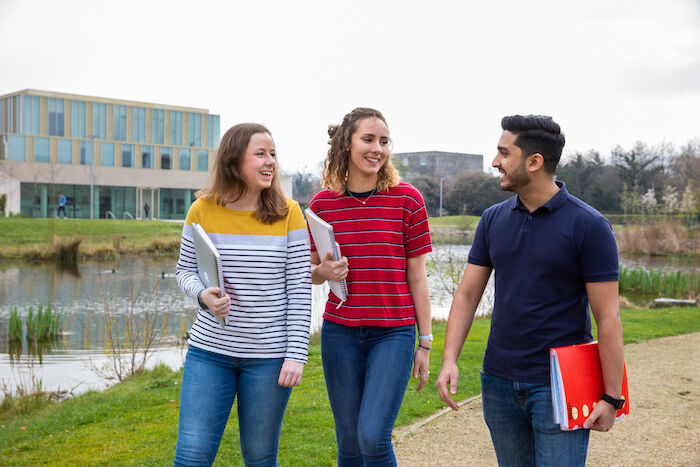-
Table of Contents
Unlocking the potential of every child through The Montessori Method.
The Montessori Method is an educational approach that focuses on the child as the center of learning. Developed by Dr. Maria Montessori in the early 20th century, this method emphasizes independence, freedom within limits, and respect for the child’s natural development. It is based on the belief that children are inherently curious and capable of self-directed learning. The Montessori Method encourages hands-on, experiential learning, and provides a prepared environment that fosters exploration, creativity, and critical thinking skills. This child-centered approach has gained popularity worldwide and continues to shape the way we educate young children.
The Benefits of Implementing the Montessori Method in Early Childhood Education
The Montessori Method is a child-centered educational approach that has gained popularity in recent years. Developed by Dr. Maria Montessori in the early 20th century, this method emphasizes the importance of allowing children to learn at their own pace and in their own unique way. By providing a carefully prepared environment and a wide range of hands-on materials, the Montessori Method encourages children to explore, discover, and develop their full potential.
One of the key benefits of implementing the Montessori Method in early childhood education is that it promotes independence and self-confidence. In a Montessori classroom, children are given the freedom to choose their own activities and work at their own pace. This not only allows them to develop a sense of autonomy, but also fosters a sense of responsibility and self-discipline. By allowing children to make their own choices and take ownership of their learning, the Montessori Method helps to build self-confidence and a positive self-image.
Another benefit of the Montessori Method is its focus on individualized learning. Unlike traditional educational approaches, which often rely on a one-size-fits-all curriculum, the Montessori Method recognizes that each child is unique and learns in their own way. In a Montessori classroom, teachers observe and assess each child’s strengths, interests, and learning style, and then tailor their instruction accordingly. This personalized approach ensures that each child receives the support and guidance they need to reach their full potential.
The Montessori Method also promotes the development of important life skills. In addition to academic subjects, Montessori classrooms also emphasize practical life skills, such as cooking, cleaning, and caring for the environment. By engaging in these activities, children learn valuable skills that will serve them well throughout their lives. They also develop a sense of responsibility and respect for themselves, others, and the world around them.
Furthermore, the Montessori Method encourages a love of learning. By providing a rich and stimulating environment, filled with a wide variety of materials and activities, the Montessori Method fosters a natural curiosity and a desire to explore. Children are encouraged to follow their interests and pursue their passions, which helps to cultivate a lifelong love of learning. This love of learning not only benefits children academically, but also prepares them for success in all areas of life.
In conclusion, the Montessori Method offers numerous benefits for early childhood education. By promoting independence, individualized learning, and the development of important life skills, this child-centered approach helps children to become confident, self-motivated learners. Furthermore, by fostering a love of learning, the Montessori Method prepares children for success in school and beyond. Whether you are a parent or an educator, considering the Montessori Method for early childhood education can be a valuable investment in the future of our children.
How the Montessori Method Fosters Independence and Self-Directed Learning in Children
The Montessori Method is a child-centered educational approach that emphasizes independence and self-directed learning. Developed by Dr. Maria Montessori in the early 20th century, this method has gained popularity worldwide for its unique approach to education. In this article, we will explore how the Montessori Method fosters independence and self-directed learning in children.
One of the key principles of the Montessori Method is the belief in the child’s innate ability to learn and develop. Dr. Montessori believed that children are naturally curious and have a strong desire to explore and discover the world around them. By providing a prepared environment that is carefully designed to meet the developmental needs of the child, the Montessori Method allows children to take charge of their own learning.
In a Montessori classroom, children have the freedom to choose their own activities and work at their own pace. This promotes independence and self-directed learning as children are encouraged to follow their interests and pursue activities that capture their attention. The teacher acts as a guide, observing and supporting the child’s learning journey, rather than dictating what and how they should learn.
The Montessori materials play a crucial role in fostering independence and self-directed learning. These materials are carefully designed to be self-correcting, meaning that children can independently assess their own progress and correct their mistakes. For example, the Montessori math materials, such as the golden beads and the number rods, allow children to explore mathematical concepts through hands-on manipulation. They can work with these materials independently, discovering patterns and relationships on their own.
Another aspect of the Montessori Method that promotes independence is the mixed-age classrooms. In a traditional classroom, children are grouped by age, but in a Montessori classroom, children of different ages work together. This allows younger children to learn from older ones and older children to reinforce their knowledge by teaching younger ones. By interacting with peers of different ages, children develop social skills, empathy, and a sense of responsibility towards others.
The Montessori Method also encourages children to take responsibility for their own learning and the care of their environment. In a Montessori classroom, children are taught practical life skills, such as pouring, sweeping, and dressing themselves. These activities not only promote independence but also help children develop concentration, coordination, and a sense of order. Children are also responsible for maintaining the cleanliness and organization of the classroom, fostering a sense of ownership and pride in their environment.
In conclusion, the Montessori Method is a child-centered educational approach that fosters independence and self-directed learning in children. By providing a prepared environment, allowing freedom of choice, and promoting hands-on learning, the Montessori Method empowers children to take charge of their own education. Through the use of self-correcting materials, mixed-age classrooms, and practical life activities, children develop independence, social skills, and a sense of responsibility. The Montessori Method has proven to be a successful approach to education, nurturing the natural curiosity and love for learning that children possess.
A Closer Look at the Montessori Method: Principles, Materials, and Classroom Environment
The Montessori Method is a child-centered educational approach that has gained popularity worldwide. Developed by Dr. Maria Montessori in the early 20th century, this method focuses on the individual needs and interests of each child, allowing them to learn at their own pace and in their own unique way. In this article, we will take a closer look at the principles, materials, and classroom environment that make the Montessori Method so effective.
One of the key principles of the Montessori Method is the belief in the innate ability of children to learn and develop. Dr. Montessori observed that children have a natural curiosity and desire to explore their environment. She believed that by providing them with a prepared environment and the right materials, children would be able to learn and develop to their full potential. This principle is at the core of the Montessori Method and guides all aspects of the educational approach.
In a Montessori classroom, the materials play a crucial role in facilitating learning. These materials are carefully designed to be self-correcting, meaning that children can independently identify and correct their own mistakes. This promotes a sense of independence and self-confidence in the child. The materials also provide concrete, hands-on experiences that help children understand abstract concepts. For example, the Montessori math materials use manipulatives such as beads and rods to help children grasp mathematical concepts like addition and subtraction.
The classroom environment in a Montessori school is carefully prepared to meet the needs of the children. It is a calm and orderly space, with designated areas for different activities such as practical life, sensorial, language, math, and cultural subjects. Each area is equipped with appropriate materials that are accessible to the children. The classroom is also designed to promote independence, with child-sized furniture and materials that are easily within reach. This allows children to move freely and choose their own activities, fostering a sense of responsibility and ownership over their learning.
Another important aspect of the Montessori Method is the role of the teacher. In a Montessori classroom, the teacher is seen as a guide or facilitator rather than a traditional instructor. The teacher observes the children closely, identifying their individual needs and interests, and provides guidance and support as needed. The teacher also introduces new materials and activities to the children, based on their developmental stage and interests. This individualized approach ensures that each child receives the support and guidance they need to thrive.
The Montessori Method has been praised for its ability to foster independence, creativity, and a love for learning in children. By allowing children to learn at their own pace and in their own unique way, the Montessori Method promotes a lifelong love for learning. It also helps children develop important life skills such as problem-solving, critical thinking, and collaboration. The Montessori Method has been adopted by schools around the world, and its principles and practices continue to shape the field of education.
In conclusion, the Montessori Method is a child-centered educational approach that focuses on the individual needs and interests of each child. The principles, materials, and classroom environment of the Montessori Method work together to create a nurturing and stimulating learning environment. By providing children with the freedom to learn at their own pace and in their own unique way, the Montessori Method promotes independence, creativity, and a love for learning. It is no wonder that this educational approach has gained popularity worldwide and continues to shape the field of education.The Montessori Method is a child-centered educational approach that emphasizes independence, freedom within limits, and hands-on learning. It was developed by Maria Montessori in the early 20th century and has gained popularity worldwide. This method focuses on the individual needs and interests of each child, allowing them to learn at their own pace and explore their own interests. The Montessori Method promotes the development of critical thinking, problem-solving skills, and a love for learning. Overall, it offers a unique and effective approach to education that nurtures the holistic development of children.







